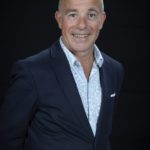Link to Pubmed [PMID] – 16828036
Med Sci (Paris) 2006 Jun-Jul;22(6-7):607-13
Contrary to the long-held dogma according to which the adult mammalian brain does not produce neurons anymore, neuronal turnover has been reported in two discrete areas of the adult brain: the hippocampus and the olfactory bulb. Adult-generated neurons are produced from neural stem cells located in the hippocampal subgranular zone and the subventricular zone of the lateral ventricles. Recently, number of genetic and epigenetic factors that modulate proliferation of stem cells, migration, differentiation and survival of newborn neurons have been characterized. We know that neurogenesis increases in the diseased brain, after stroke or after traumatic brain injury. Importantly, progenitors from the subventricular zone, but not from the subgranular zone, are incorporated at the sites of injury, where they replace some of the degenerated neurons. Thus, the central nervous system has the capacity to regenerate itself after injury and, today, researchers develop strategies aimed at promoting neurogenesis in diseased areas. This basic research is attracting a lot of attention because of the hope that it will lead to regeneration and reconstruction therapy for the damaged brain. In this review, we discuss major findings concerning the organization of the neurogenic niche located in the subventricular zone and examine both intrinsic and extrinsic factors that regulate adult neurogenesis. Then, we present evidences for the intrinsic capability of the adult brain for cell replacement, and shed light on recent works demonstrating that one can greatly enhance appropriate brain cell replacement by using molecular cues known to endogenously control proliferation, migration, differentiation and/or survival of subventricular zone progenitors. Finally, we review some of the advantages and limits of strategies aimed at using endogenous progenitors and their relevance to human clinics.

